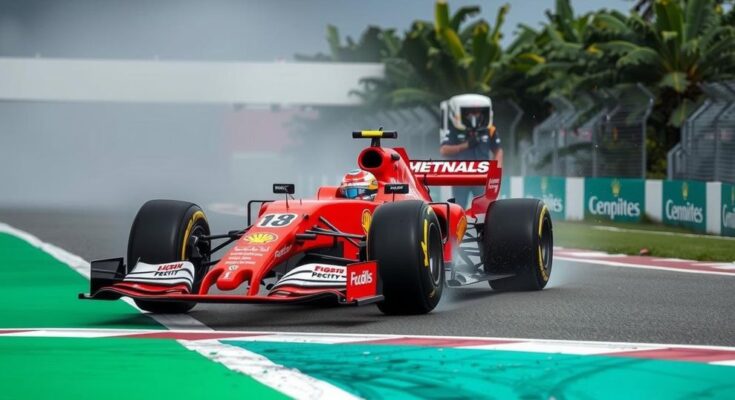Several countries, including Rwanda, South Africa, and Thailand, aim to host Formula One races, but face criticism due to their socio-economic issues. South African officials advocate for a Grand Prix’s return despite ongoing funding challenges. The need for public funds for such events raises ethical concerns, particularly in nations where many citizens live in poverty. A sustainable approach might involve prioritizing local communities over wealth-driven motives in motorsport.
As Formula One racing attracts attention worldwide, certain nations have expressed interest in hosting Grand Prix events. Nations such as Rwanda, South Africa, and Thailand, however, may not be suitable candidates due to pressing socio-economic issues. Leaders in these countries, such as South Africa’s sports minister Gayton McKenzie, have argued for the necessity of Formula One returning to Africa; yet, significant challenges remain regarding funding and the viability of hosting such expensive events.
For decades, South Africa has attempted to reintroduce the Grand Prix at the Kyalami circuit, only to face consistent funding shortfalls. The situation seems to perpetuate as governmental resources prioritize funding for events that cater primarily to wealthier individuals while neglecting critical public welfare needs—such as basic utilities and food security—that many citizens still lack. The expectation of large tourist influxes to justify the costs has proven largely unrealistic, highlighted by Malaysia’s experience with the economic repercussions of hosting the event.
With many residents struggling financially, the likelihood of attracting substantial numbers of European spectators willing to pay high travel costs remains low, casting further doubt on the financial sustainability of such races. The FIA and Formula One Management, if sincerely interested in promoting motorsports in these regions, should take a more philanthropic approach by waiving fee requirements and offering affordable ticket prices to local communities, thereby investing in the development of grassroots motorsports instead of solely pursuing profit through elite events.
The interest from countries like Rwanda, South Africa, and Thailand to host Formula One races poses significant questions regarding priorities in underdeveloped regions where citizens often face severe economic challenges. With funds typically derived from government support, it raises ethical considerations about the prioritization of taxpayer money for luxury events versus essential services. As these nations seek to enhance their global profile through sporting events, concerns grow about the practicality and morality of investing in motorsport rather than addressing the pressing needs faced by their populations.
In summary, while the aspirations of Rwanda, South Africa, and Thailand to host Formula One races reflect a desire to gain international prestige, such pursuits may be inappropriate given the socio-economic realities in these countries. Leaders should prioritize basic needs of their populations over luxury events. For Formula One and its governing bodies, a more socially responsible approach—focusing on investment in local communities instead of profit-driven ventures—would align better with the developmental aspirations of these nations.
Original Source: www.gpblog.com




